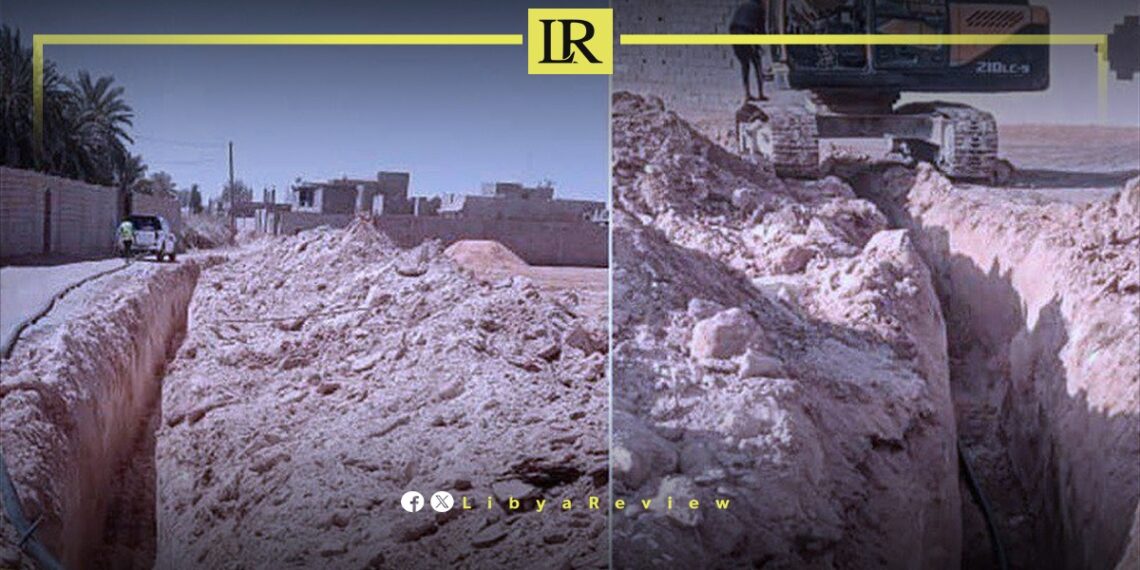The Libyan Government-designate, through the Ministry of Water Resources, has commenced the implementation of a modern drinking water network project spanning 3,850 meters in the Ash Shwayrif area.
This initiative aims to provide the local population access to clean drinking water, marking a pivotal step in the government’s broader plan to improve service levels across various cities and regions within Libya.
Under the direct supervision of the Minister of Water Resources, Mohamed Douma, the project involves collaboration with the Water and Sanitation Company to ensure the seamless execution of the water network. The statement highlighted the deployment of specialized expertise and equipment to guarantee the highest standards of efficiency in the project’s realization and to address any technical issues that might compromise water quality.
This development reflects the Libyan Government’s commitment to addressing the essential needs of its citizens and improving their quality of life. By focusing on critical infrastructure projects such as this drinking water network, the government demonstrates its commitment to sustainable development and the well-being of the Libyan populace.
Last month, the Libyan Government, led by Prime Minister Osama Hammad entered discussions regarding the establishment of Teacher Training Institutes in three major cities: Benghazi, Tripoli, and Sabha. This development was announced following a meeting between Prime Minister Hammad and the Minister of Education, Jumaa Al-Jadid, focusing on measures to enhance Libya’s educational sector.
Key outcomes of the meeting include the strategic funding allocation for educational improvements and the proposal for Teacher Training Institutes. These institutes are intended to bolster the quality of education by providing comprehensive training for teachers, essential for the country’s educational advancement.
Further decisions made during the meeting involve relocating the Training and Development Center to Benghazi. This move is part of a broader effort to decentralize educational resources, making them more accessible across the country.


